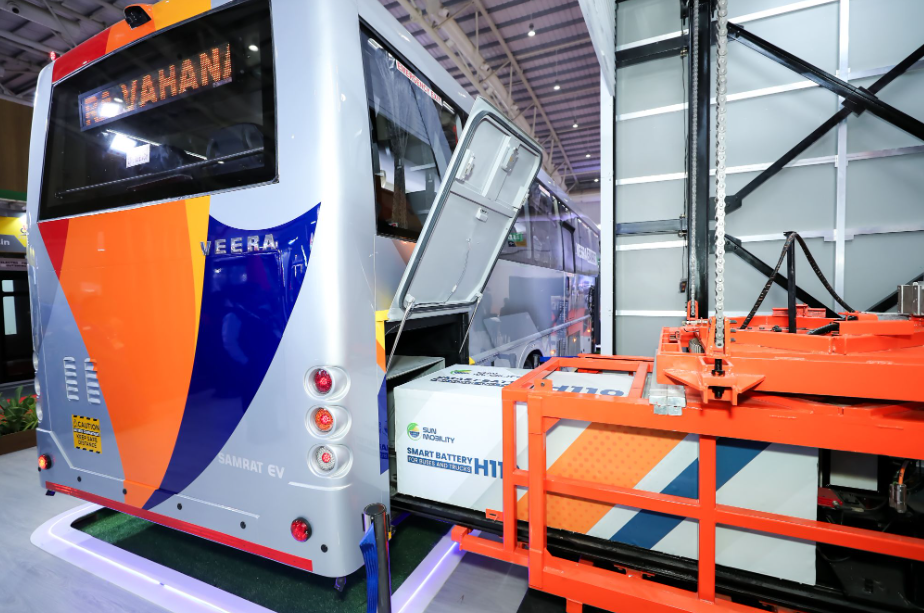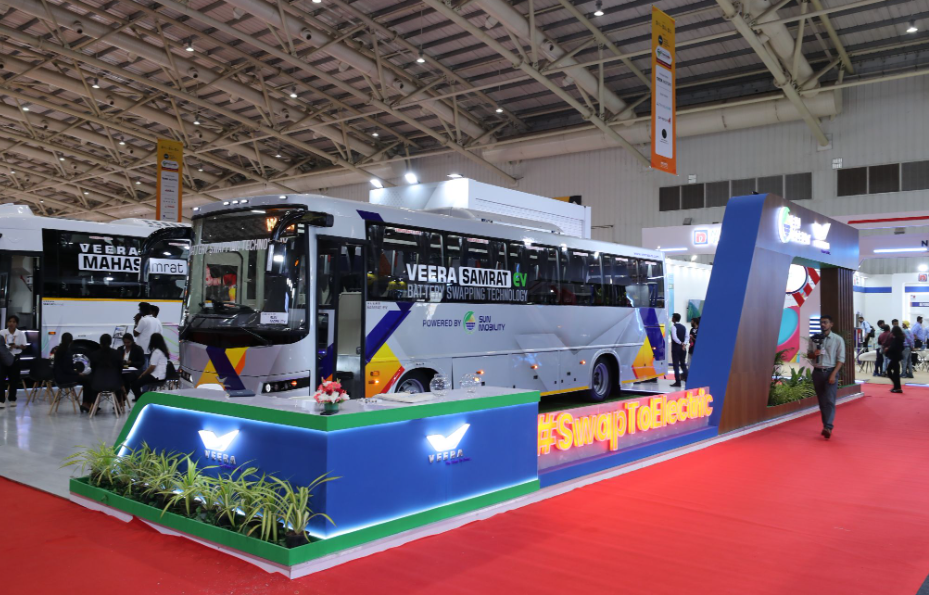
New Delhi: SUN Mobility which has unveiled its modular battery swapping technology for heavy electric vehicles (HEVs) at Prawaas 4.0 (an international conference organised by Bus and Car Operators Confederation of India) is aiming to commercialise its products next year.
For its new HEV business, SUN Mobility targets fundraising to accelerate R&D (Research and development) and product manufacturing. “We’re looking at raising further capital for our business in India…in this quarter we’re starting the process,” Chetan Maini, co-founder and chairman of SUN Mobility told ETAuto. However, the amount has not been disclosed by the chairman as the process is yet to start.
This technology can be incorporated in vehicles such as light commercial vehicles (LCVs), medium commercial vehicles (MCVs), heavy commercial vehicles (HCVs), trailers, mining vehicles, fixed trucks, port vehicles, buses, and others are included.
The Bengaluru-based company through this technology aims to address entry barriers of electric mobility faced by fleet owners such as cost of ownership, runtime, and energy consumption, stated the chairman of SUN Mobility. “Battery swapping resolves all of these issues and pushes the adoption of electric commercial vehicles at a very rapid pace,” he added.
This new technology can aid in reduction of upfront cost of the buses by almost 40%, making it similar to the upfront cost of ICE buses. Which break entry barriers to EV adoption in HCVs (heavy commercial vehicles), explained Ashok Agarwal, newly elected CEO- HEV, SUN Mobility. This can also reduce the operational costs of fleet owners to approximately 20%, he added.
Recently the company has also announced the investment made by Indian Oil Corporation of USD 78 million leading to a 50:50 joint venture. This investment will be utilised by SUN Mobility to use IOC’s network and outlets to cater to EVs.
Commercialisation of the business
“We hope to go live early in the first quarter of next financial year i.e. Q1 FY26 … and we will have initially 8-10 different use cases, which will be rolled out throughout FY 25,” stated Agarwal. After which the company plans to deploy on a larger and wider scale.
The rollout will be initially at a close loop system which is where the company will have its assets and infrastructure for the customer. “An operator wants to run buses between say Bangalore and Chennai. So it is our responsibility that we will roll out the infrastructure for them,” stated CEO-HEV SUN Mobility.
The company aims to roll out different use cases with robotic swapping ranging from three tonnes to 55 tonnes in the coming 18 to 24 months. The robotic station has the capability to swap a battery within three minutes.
Tie-ups and expansion
The company has received a good response within three days of showcasing its new technology at Prawaas 4.0, stated Agarwal. “We have received more than 13,000 inquiries from the private market,” he added. However, he did not disclose any potential company’s information for the new business tie-up.
During Prawaas 4.0, the company in collaboration with Veera Vahana (bus manufacturer) has demonstrated 10.5 meters battery swappable buses for intercity routes. Same technology will be incorporated in all the vehicles of Veera Vahana.
Currently, the company does 1.8 billion swaps per month across its 630 stations, which they aim to double within 8 months, stated Maini.


















